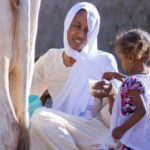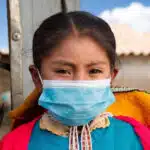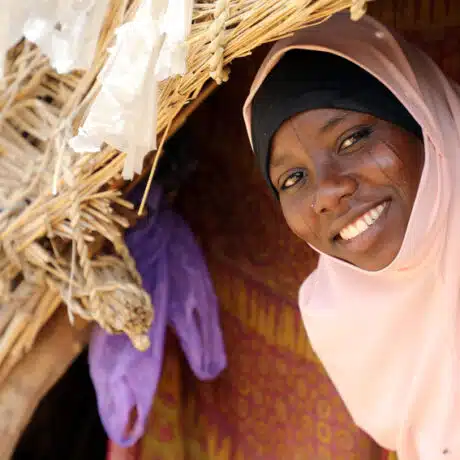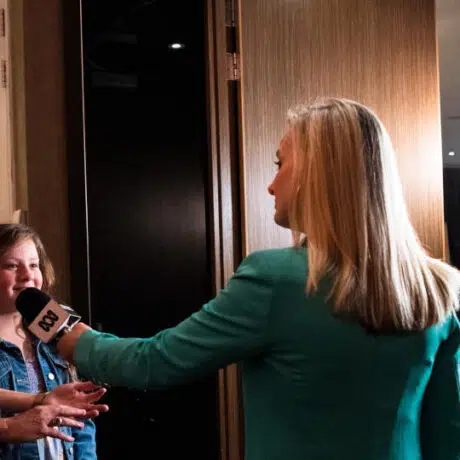News and Stories - Girls Rights - 12 July 2021
Cyber Safety in Solomon Islands
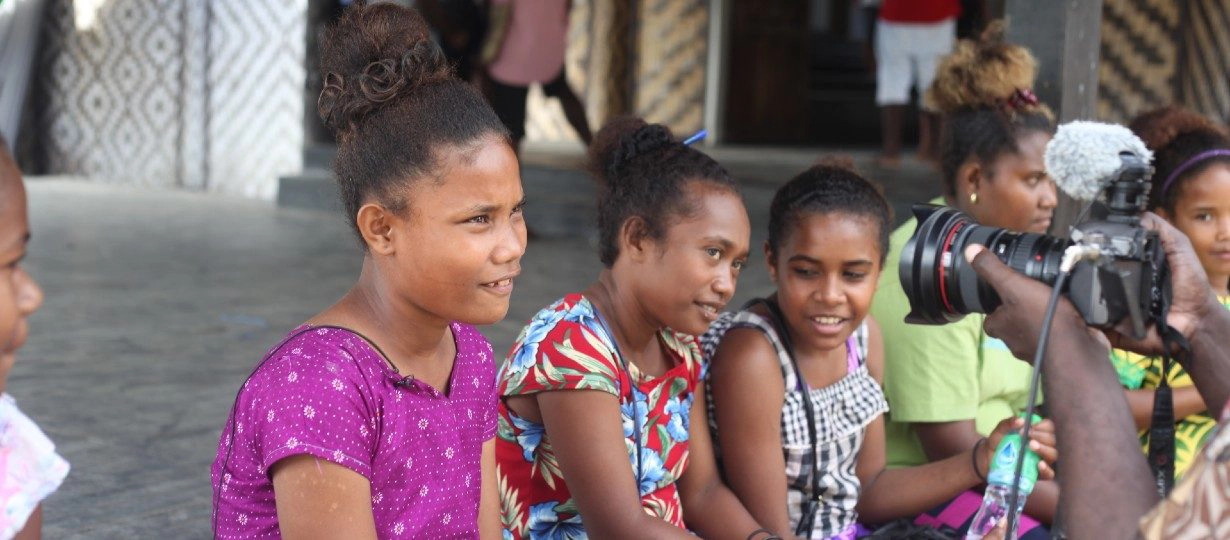
Making online spaces safer for young people
In October 2020, Plan International Australia, ChildFund Australia and Western Sydney University, funded by the Australian Government, launched Online Safety in the Pacific, a report highlighting the challenges and opportunities children’s technology use presents in the Pacific. Now, almost 10 months on, children and young people in Solomon Islands have come together to share their solutions for a safer online environment at the first ever National Youth Forum for Cyber Safety.
Internet access is transformative. It equals opportunity — to learn, to grow and to connect. However, in places like the Pacific, where cable internet and mobile phone usage is a relatively recent development, the same technology that brings opportunity can also expose children and young people to new risks and harm.
Over the last decade, the Pacific has seen a rapid expansion of mobile phone technology and internet access, largely thanks to the new Coral Sea Cable System linking Australia, Solomon Islands and Papua New Guinea. Online safety is a particular concern in contexts like this, where internet users are not well versed in identifying online risks and protecting children from harm.
At this important juncture, it is critical that initiatives and programs addressing cyber safety and digital technology use understand the specific needs and wants of children and young people to ensure an appropriate balance between harnessing the opportunities and mitigating the risks and of digital technologies in the Pacific. And that’s where our research and the National Youth Forum on Cyber Safety comes in.
In October 2020, Plan International Australia, in collaboration with ChildFund Australia and Western Sydney University, launched Online Safety in the Pacific, a report looking at the challenges and opportunities children’s technology use presents in Solomon Islands, Kiribati and Papua New Guinea.
The research highlighted a critical gap in access to online safety and digital literacy programs, with children, young people and their families in Solomon Islands feeling under-equipped to reap the benefits of the digital age while also staying safe online.
Below are some of the key findings:
- In Solomon Islands, children identify cyberbullying and hacking on social media as their greatest online concerns.
- Overall, children are familiar with technical self-protective strategies, but only identified parents and carers as the primary support for their online safety.
- Access to digital technology remains a key challenge, with 50% of children reporting they do not own or have reliable access to a digital device.
- Children are excited to use digital technology to improve their English and access religious resources online such as bible apps.
- Dominant gender roles play into children’s framing of online risks, with the vast majority of child participants reporting that they believe girls are far more at risk of harm online than boys.
While many children and young people have a sense of the ways digital technology might contribute to a better world, there is significant scope to encourage them to think more expansively about future opportunities and how digital technology might be mobilised to connect and to participate safely and meaningfully.
In response to these findings and together with Plan International Solomon Islands, Plan International Australia and ChildFund Australia are currently delivering a two-year online safety project in Solomon Islands, designed to increase awareness around children and young people’s online experiences, and equip young people, their parents, and community with the knowledge and skills to promote youth-led and gender-responsive approaches to online safety.
Growing Up Online
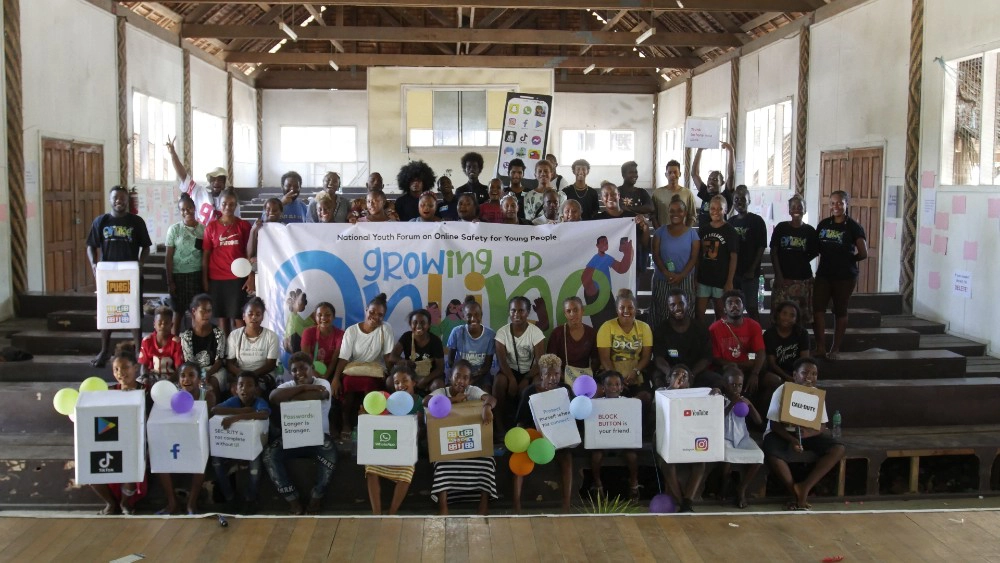
On 8-9July 2021, 50 children and young people in Honiara participated in Growing Up Online, a series of workshops and activities around online safety as part of the National Youth Forum on Cyber Safety, which forms a key component of the project.
The first of its kind in Solomon Islands, the forum is an opportunity for young people to participate in discussions around their online safety and analyse the key research findings from the Online Safety in the Pacific report, ensuring their voices, experiences, priorities, and recommendations are captured and reflected across existing and emerging national online safety initiatives.
The forum acted as the official launch and presentation of these findings, along with recommendations for policymakers. 10 young people were selected to present the voices and views collated in the forum to parents, community stakeholders, service providers and organisation representatives working around child protection, cyber law enforcement and policy, including representatives from the Ministry of Communication & Aviation, the Ministry of Women, Youth, Children and Family Affairs, along with the Deputy Secretary to the Prime Minister, DFAT Counsellor Governance Mr Andrew Elborn represented, the New Zealand High Commissioner and the British High Commissioner.
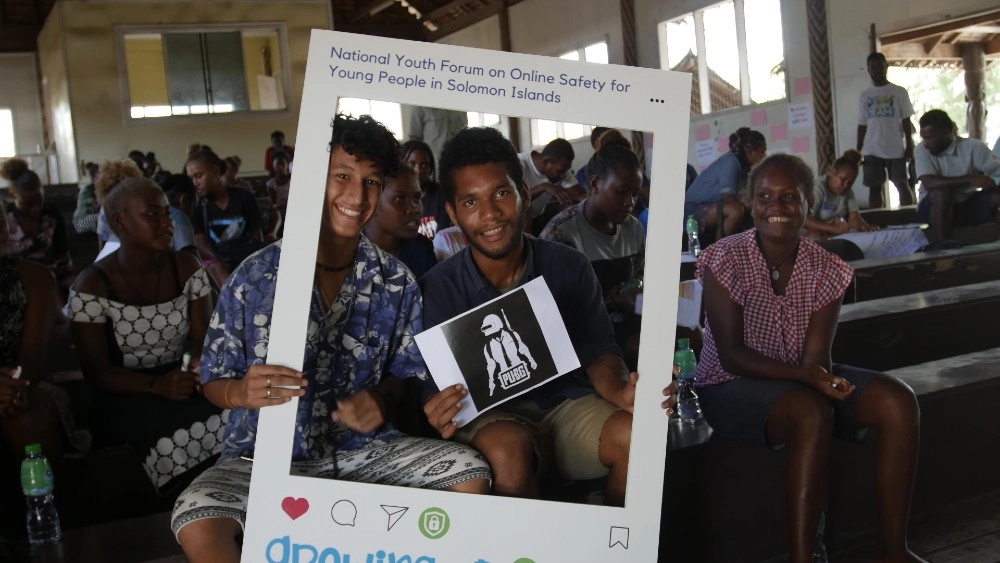
The online space offers a world of possibilities and benefits for children’s education, health and development. In order for them to enjoy these opportunities safely, we must centre their voices in solutions and empower them to become informed and active global citizens in a digital world.
Read the full report
- “As our digital landscape transforms to new heights with the undersea cable and Government plans to construct 200 new towers for improved and far-reaching internet access across our country, now more than ever, we must work harder together to improve digital literacy amongst our population and help our young people understand risks that may cause them harm with greater internet access. The future is digital and with more and more young people being online, it is important that we help protect them and think of pathways through our respective works in development to ensure that their views are recognised and their challenges online are captured.
I am so pleased to be part of this important event for our nation and Plan International’s continuous efforts to recognise the importance of protecting our young digital generation in partnership with Childfund Australia and Western Sydney University. I would like to thank all the young people who took part at this event, all the helping hands and stakeholders for availing their time to listen and be part of starting the conversation on how best can we decrypt the digital future to ensure the internet is a safe space for our children and young people so they can maximise on the benefits of the internet whilst we work together to minimise the dangers they are exposed to.
Millicent Barty, Lead Facilitator & Consultant Plan International Solomon Islands
Thanks to our donors – Australian Department of Foreign Affairs and Trade’s (DFAT) Cyber and Critical Tech Cooperation Program; DFAT’s Australian NGO Cooperation Program (ANCP); and the Australian Public
And thanks to our project partners – Plan International Australia, Plan International Solomon Islands, ChildFund Australia, and Western Sydney University Young & Resilient Research Centre.

